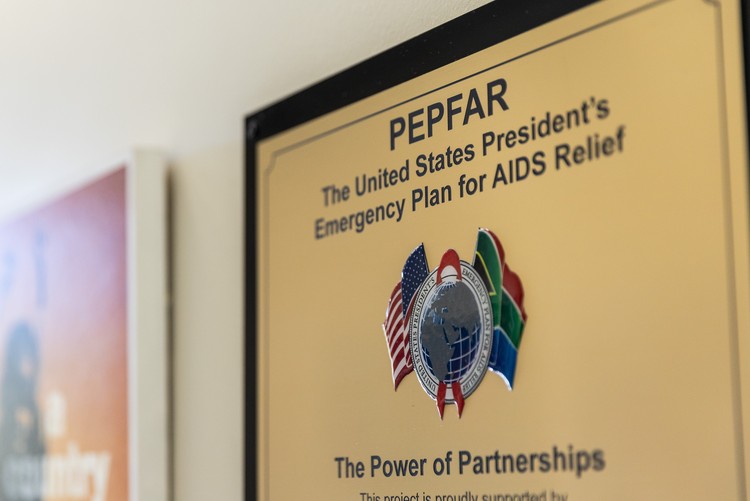HIV activists urge Parliament to respond to PEPFAR cuts
Parliament told that many clinics have closed and people can’t access HIV medication
On Thursday, the Portfolio Committee on Health heard from members of the Global HIV Treatment Coalition who outlined the impending health crisis caused by he PEPFAR cuts. Archive photo: Ashraf Hendricks
- Activists from the Global HIV Treatment Coalition presented to the Portfolio Committee on Health on Thursday, outlining the impending health crisis due to funding cuts.
- Francois Venter, clinician researcher at Wits University, explained how Gauteng was the worst hit by the PEPFAR cuts.
- He said that without this funding, there has been a collapse of HIV testing programmes and pre-exposure prophylaxis (PrEP) programmes.
- HIV activist Zackie Achmat demanded that the health department and National Treasury make public their plans to address the funding shortfall they mentioned in statements earlier this year.
Clinics providing critical HIV treatment and other health services across the country have been forced to close or severely scale down operations, activists told Members of Parliament on Thursday.
Presenting to the Portfolio Committee on Health on Thursday, members of the Global HIV Treatment Coalition outlined the impending health crisis. This follows a disruption by activists of the committee’s meeting last week. They demanded a response to a letter the coalition had sent, calling for intervention to address the impact of funding cuts to HIV programmes.
In January, the US withdrew billions of rands of funding when it cancelled the President’s Emergency Plan for AIDS Relief (PEPFAR), which has led to many clinics closing, health staff being retrenched, and people struggling to access HIV health services.
Sibongile Tshabalala, chairperson of the Treatment Action Campaign (TAC), said there have been cases of patients without referral letters being turned away at hospitals and clinics. In Gauteng, some people were only getting a one or two-month supply of antiretrovirals (ARVs), compared to the usual 3-6 month supply, Tshabalala said.
Francois Venter, clinician researcher at Wits University, said that Gauteng was the largest recipient province of PEPFAR. Without this funding, there has been a collapse of HIV testing programmes and pre-exposure prophylaxis (PrEP) programmes, he said.
This means that HIV is not being identified early. “We’re going to stop finding people when they’re sick … New infection rates are probably going up on the ground”, he added.
In response, ANC MP Fisani Shabangu acknowledged that there were “challenges” but said “the department has done a lot to make sure to put patients first”.
Shabangu said it was “not fair” to “press the panic button”. Shabangu then asked the activists to provide data on the clinics that have closed down.
In response, Venter noted that those statistics should be provided by the Department of Health and the National Health Laboratory Service (NHLS). He urged the MPs to challenge the Minister of Health on what he had presented to the committee.
HIV activist Zackie Achmat said that the health department and National Treasury made statements about plans to address the funding crisis, and provinces have also submitted plans. He asked that these plans be made public so experts and “people directly affected and working with communities” could see and discuss them.
“All of us would like to ensure that the HIV programme works,” he said.
Nomsa Mercy from Sex Workers Education and Advocacy Taskforce (SWEAT) told MPs how sex workers are now battling to get medication since the closures of US-funded clinics and mobile units.
Mercy said that some stay far away from public health facilities and SWEAT has not yet been able to inform some sex workers that their medication won’t be arriving from this month.
“As we speak, some of them are still waiting for the vans,” she said. There have been issues with some sex workers not getting referral letters to public facilities after their clinics closed, but SWEAT is assisting with this.
Committee chair Sibongiseni Dhlomo said that the committee would prepare a document from the meeting for the health minister and that another meeting with the minister and activists should be arranged soon.
Support independent journalism
Donate using Payfast

Don't miss out on the latest news
We respect your privacy, and promise we won't spam you.
Next: Dunoon residents threaten more protests over demolitions
Previous: SIM card provider dodges law
© 2025 GroundUp. This article is licensed under a Creative Commons Attribution-NoDerivatives 4.0 International License.
You may republish this article, so long as you credit the authors and GroundUp, and do not change the text. Please include a link back to the original article.
We put an invisible pixel in the article so that we can count traffic to republishers. All analytics tools are solely on our servers. We do not give our logs to any third party. Logs are deleted after two weeks. We do not use any IP address identifying information except to count regional traffic. We are solely interested in counting hits, not tracking users. If you republish, please do not delete the invisible pixel.

